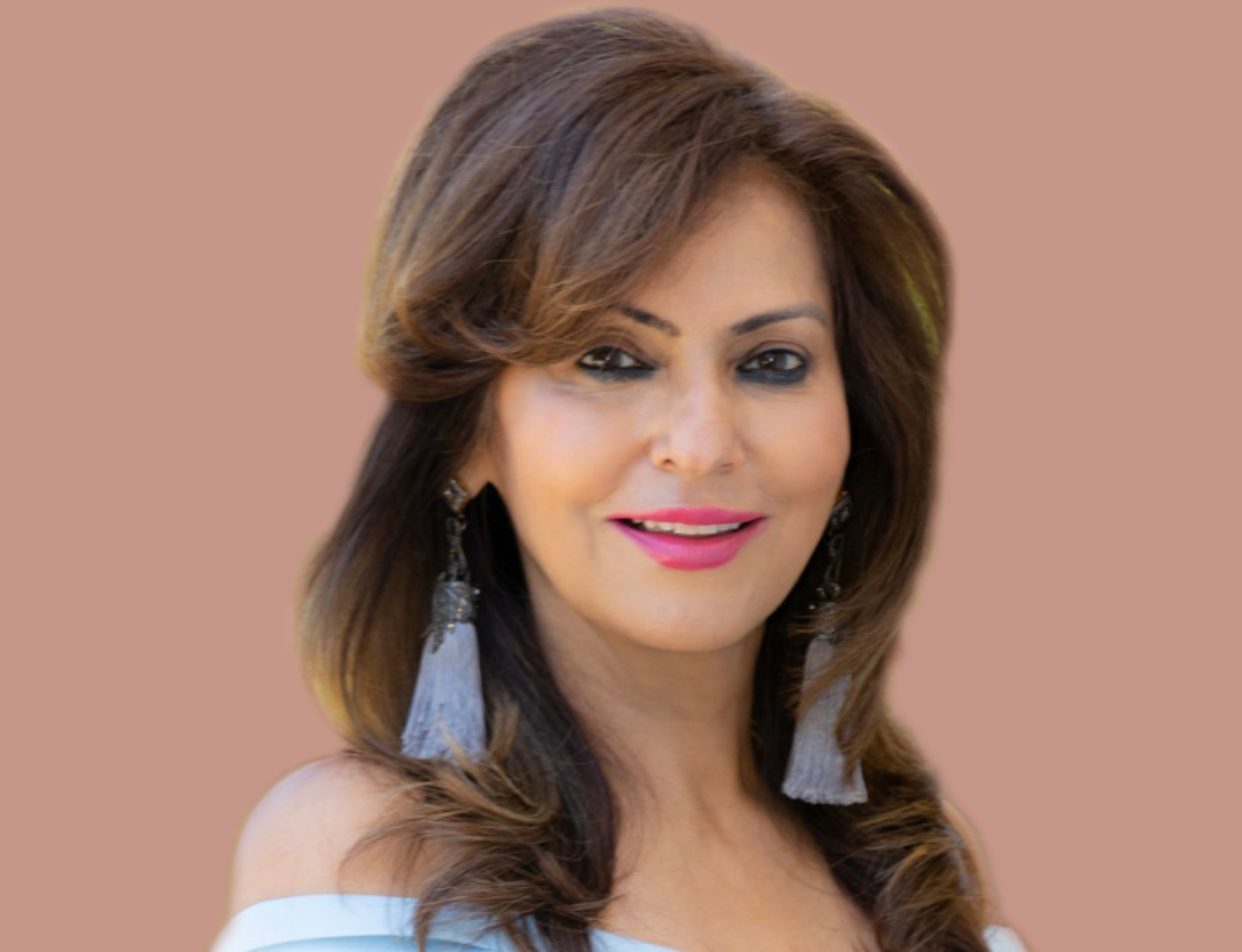Ask any writer about the process of getting their book published, and they will likely recount a tale fraught with all the emotions you experience in a typical Bollywood movie. Joy, elation, frustration, anger, hurt, rejection and then, if the movie has a happy ending — jubilation.
Anoop Judge is a writer, published author, former TV show host who knows a thing or two about the long, winding road to getting a book published. A former litigator, Anoop is riding a second career wave all the way to her publishers. We connected to talk about unexpected career turns, her journey as a writer and getting signed by her dream agent.
Why did you transition from the law to a creative field in media and writing?
I went to law school in New Delhi in India, where I wrote for a university paper (which I think was my first foray into writing). After my husband and I moved to the United States I got my J.D. and became a litigator. While I absolutely loved being a litigator and going to trials in court the law is as they say, a jealous mistress. Burnout is part of the profession. I thrived in the work and the glamour that comes with it but I was also raising a young family. My daughter had an auto-immune deficiency and needed me. After seven years of practicing law, I decided to take a step back. It was around this time that the idea of writing a novel came to me. The kinds of novels I like to read.
Can you speak a little bit about burnout as a lawyer and what ultimately prompted you to leave?
I don’t think anyone will be surprised by this but almost all the women I know that were my colleagues, have left litigation and moved onto second careers. It’s not true of my male-colleagues in the same way, so I think there is something to be said for how women experience burnout in the law. I was working on a major case in Sacramento, an hour away from where I live. I was commuting over two hours a day with a young child and a baby at home. There were often major cases that required inter-city or inter-state travel, long hours and late nights. When it became too much, I worked part-time for a while in a smaller office and with smaller cases but when my child’s health came to a head, I had to leave. I had been feeling burnt out for a long time but that was the final push. I have so many anecdotes over the course of my career of women who wanted to move out of the law and we weren’t talking about burnout the way were are now.
Writing a book and getting signed by an agent is one of the hardest parts of being an author. Did you know what you were getting into?
I had always had a dream to write a novel and I promised myself that I would do it. Six years ago, I self-published a book called The Rummy Club, but I was too new and too raw. At that time, my goal was simply finishing the book. I did send the manuscript to a few agents but like with anything you learn as you go. I’ve learned so much about getting published since then but more importantly, I’ve grown as a writer and that has been the greatest gift in this process.
What’s the biggest factor in getting your manuscript published?
Definitely the writing. I had a couple of agents look at my first book and turn it down because the writing wasn’t quite there, or the plot had a sagging middle. I think there is a common misconception that all you need is a massive social media platform to become a published novelist. That’s simply not true. Having a large social media presence helps and I would say you need to beef up your presence, especially on Twitter because agents will look at that, but it cannot substitute for good writing. If you don’t have a good book that agents can sell, you’re not going to have a career as a writer. So keep writing and keep querying. There is no magic formula. The other piece to this is that often people start querying agents they know of, whose work they have been following or bigger publishers. But there are so many smaller indie publishers that are looking for unique work. I advise that you look at publishers and agents whose work matches your own. Look at the books they have sold and their current clients to get a gauge of what they like.
A book can take anywhere from a few months to a few years to finish. How do you know what to write about when industry tastes and trends are constantly changing?
This is the eternal question that aspiring authors ask — what do I write about? And the eternal answer is write what you know. Around the time that Slumdog Millionaire was at its zenith I believed that America wanted a book that explores deep rooted social problems in India in a similar vein. So, I wrote my second book The Awakening of Meena Rawat which explores what I think of as the cancer of Indian society — the caste system. The book took me almost four years to write and when I queried it, an agent wrote back to me to tell me that at that time, literary fiction was becoming exceedingly hard to sell. The book itself is literary fiction that deals with an ancient system and needed a lot of research. It comes out in May 2021 and my latest projects are the kinds of books I had envisioned writing when I was twenty years old. My most recent novel, No Ordinary Thursday is that kind of book, what would traditionally be classified as “women’s fiction,” although I don’t particularly like the term.
Fiction by women novelists often gets that label. Can you tells us a little bit more about No Ordinary Thursday and the misconception around “women’s-fiction?”
I think I had always dreamt of writing commercially viable fiction that explored important issues. Women’s fiction is a misnomer because it is fiction that either centers around women protagonist or addresses issues important to women (that should be important to society as a whole!). Like many women writers I don’t like the term women’s fiction because it’s been perceived as non-serious (think beach-reads) . No Ordinary Thursday was inspired by the marriage between Priyanka Chopra and Nick Jonas and the observations I made within the Indian community and my own community as a reaction to it. By reaction, I mean an older Indian woman marrying a younger white American man. It’s not something that happens often, there is cultural stigma and so it was interesting to explore societal perceptions.
Do you have any advice for young women and particularly BIPOC women that are on their own writing journeys?
Getting signed by an agent and then published is one of the hardest journeys a writer goes on. it is frustrating, tedious and often lonely. Rejection is baked into the experience because ultimately you are appealing to an individual’s taste. The agent you’re querying is the person that your book needs to resonate with. During the days of The Awakening of Meena Rawat a couple of agents got back to me with some feedback. When I was querying No Ordinary Thursday, agents were interested but the version that landed on my agent, Jessica Faust’s desk is not the version I originally queried. If I could give aspiring writers one piece of advice, it would be this — if an agent takes the time to write back to you and give you feedback on your query, treat the feedback like gold. Agents are busy, they get thousands of queries, so most either don’t get read by them (many have assistants that do a first pass) and then if they do see it, they simply do not have the time or capacity to get back to everyone. So, if an agent has taken the time to write back to you it means they see something there. The book might have potential. Take precious feedback, don’t have an ego about it, improve your writing and improve the book. It only takes one agent to love it to want to sign you and sell it.
There have been barriers in the publishing industry for those writing about their communities because it was believed that the market demand is too small or that readers are only used to one type of book from BIPOC writers (remember my Slumdog Millionaire example?). That is starting to change. The industry is now seeking out #ownvoices writers. Authors who write from their perspective and lived experience in their own voices and not what has historically been commercially viable. There is a demand from readers to read these stories and I believe that presents an opportunity for BIPOC writers who are passionate about the craft to make a name for themselves in a way we haven’t before.
Anoop Judge is the author of The Rummy Club and her book The Awakening of Meena Rawat is due for release on May 27, 2021, Black Rose Writing Press. She is represented by Jessica Faust. You can read snippets of Anoop’s incredible and hilarious writing on her website The Brown Neighbor
`






